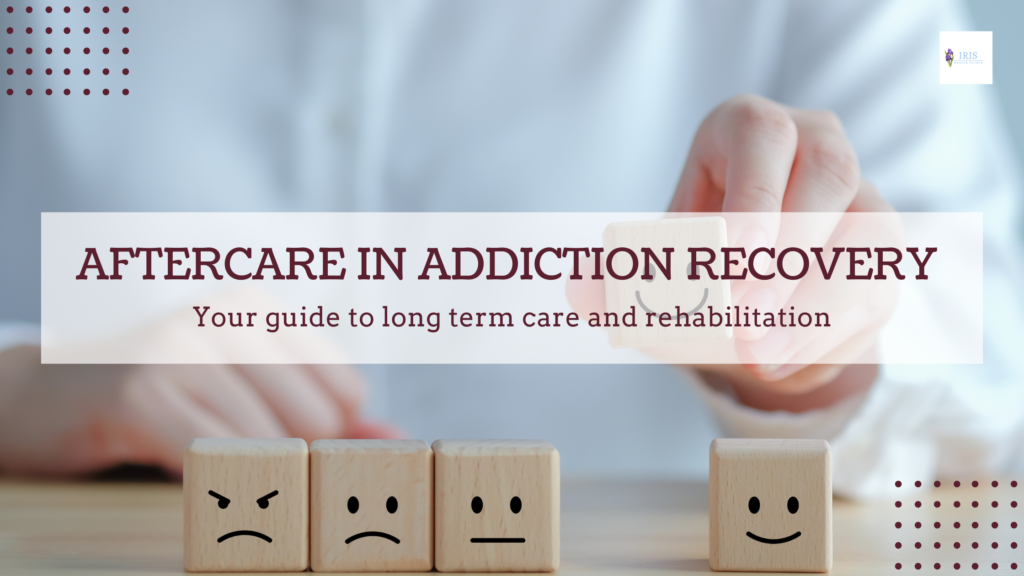Recovery from addiction is a tough road, but it is also one of the most rewarding paths you can take toward a healthier, happier life. The completion of a residential addiction treatment program is an accomplishment, but the work does not end when you leave the facility. Aftercare is important to ensure that you stay on the right track and do not revert to your old ways.
In this blog, we’ll explore why aftercare is so important in addiction recovery and how it helps individuals stay sober and rebuild their lives. We’ll also highlight the role of a mental health clinic and how it can be a vital part of your ongoing recovery process.
What is Aftercare in Addiction Recovery?
Aftercare refers to the support and resources given after a person has completed residential addiction treatment. It is a very important step in recovery because it helps a person transition from a controlled treatment environment to their everyday lives. The goal of aftercare is to provide continued guidance, support, and tools that will help you manage triggers, avoid relapse, and maintain long term care and rehabilitation.
When you are in a residential addiction treatment center, you are surrounded by a structured environment and professional support 24/7. But when you go back home, it can be overwhelming to deal with old habits, triggers, and emotions without the same level of support. Aftercare helps bridge that gap by offering ongoing therapy, counseling, and community resources.
Why Aftercare is Important?
Continued Support
The early days out of treatment might be the toughest time. Aftercare will see to it that you get follow-through support after such a time; this can ease the way through which life changes from within. You don’t need to go about this process single-handedly; whether it’s session to session in therapy or having checks on the system, you know you’ve got a lifeline to come through for when needed the most.
Accountability
Aftercare will keep you in check. These programs are where you can achieve accountability, thus keeping you going on your journey to sobriety. Perhaps it is to attend meetings regularly, stay connected with a counselor, or keep in touch with a support group. Aftercare keeps you on your recovery schedule. Having others to answer to can also provide the motivation for moving forward, as when temptation and stress come in.
Prevention of Relapse
One of the toughest battles in drug addiction recovery is preventing relapse. Aftercare programs help one identify triggers and develop strategies that will help deal with them. Such strategies can include learning stress management, steering clear of persons or places encouraging substance use, or just understanding emotional triggers. Aftercare services are essential for keeping you sober over the long term.
Developing Life Skills
In residential addiction treatment, you learn very important coping mechanisms and skills to help you cope with your addiction. Aftercare allows you to continue building on those skills. You receive the tools to navigate the challenges that make life worth living without resorting to substances. Whether it is learning how to manage relationships, dealing with stress, or finding meaningful activities to fill your time after inpatient treatment, aftercare helps you build a fulfilling, sober life.
Emotional and Psychological Healing
Addiction often walks hand-in-hand with emotional or mental health issues. Aftercare allows you to continue to work through these underlying issues in therapy and counseling. A mental health clinic is a good place to continue this work, offering you professional support as you heal emotionally and mentally. You can focus on your emotional well-being to lay a strong foundation for long-term recovery.
How a Mental Health Clinic Aids in Aftercare?
A mental health clinic plays a crucial role in aftercare when emotional and psychological issues of recovery are involved. Addiction usually springs from mental health problems like anxiety, depression, or trauma. In this respect, you are better able to process such issues under the safety and support of therapy at a mental health clinic.
Therapists in these clinics can also be of immense help in guiding you on ways to manage your mental health while providing support throughout the healing journey. Whether facing setbacks, learning how to cope with emotions, or dealing with past trauma, therapy can empower you to get ahead without drugs.
Read about – Top 10 Mental Health Clinics in Wisconsin
What Aftercare Is Like?
Aftercare can take many diverse forms, depending on your needs and goals. Some common aftercare options include:
- Outpatient Therapy: This includes individual therapy, group therapy, or family therapy. It’s a chance to continue working on the issues that led to such addiction and learn new coping strategies.
- Support Groups: Support groups like 12-step programs or any other type of recovery-based groups offer an avenue to associate with others going through similar situations.
- Sober Living Homes: Others move to sober living homes after completing their treatment. Sober living homes offer a structured, supportive ambiance where people can reintegrate back into their lives without drugs or alcohol.
- Life Skills Training: Aftercare includes life skills training like job preparation, financial management, and building healthy relationships.
Everyone’s recovery is different, so aftercare should be tailored to your needs.
Stay Committed to Your Recovery!
Addiction recovery does not end when one leaves a residential addiction treatment center. Aftercare is an integral part of recovery, providing continuing support, accountability, and guidance. It prevents relapse, strengthens emotional resilience, and keeps you on track toward a sober, fulfilling life.
If you or a loved one struggles with addiction, take the first step by seeking support from our mental health clinic. At Iris Health Clinic, we personalize aftercare programs to support sobriety and sustained healing progress. With effective support, successfully navigate the troubles of life that come after living in residential addiction treatment.

